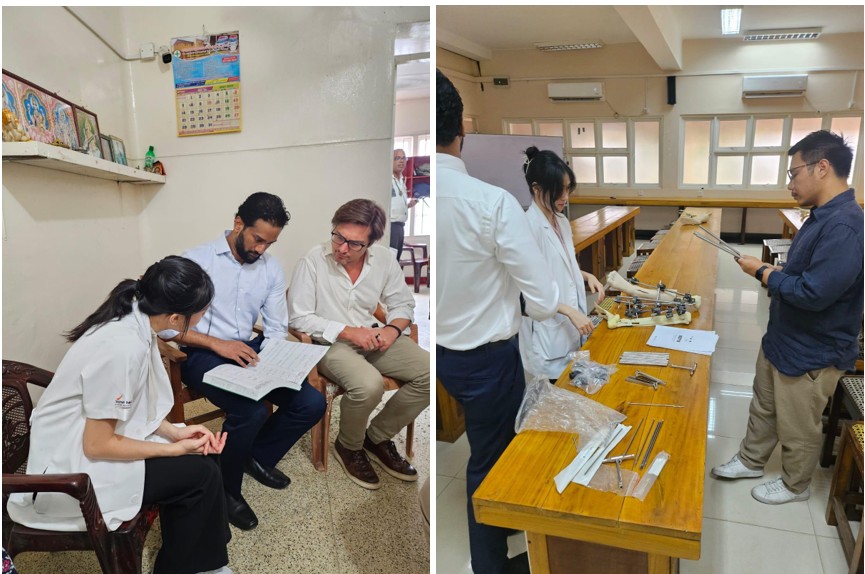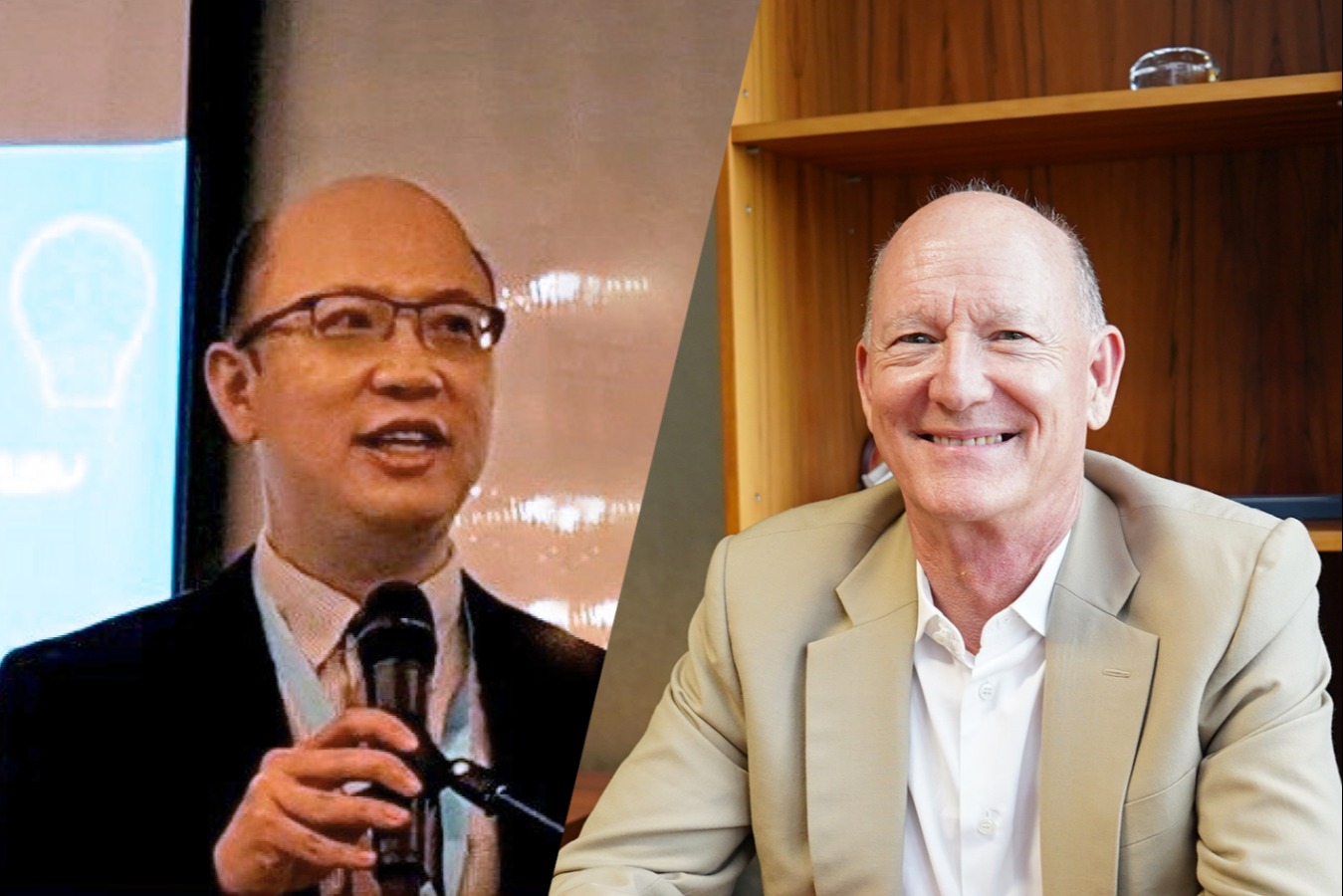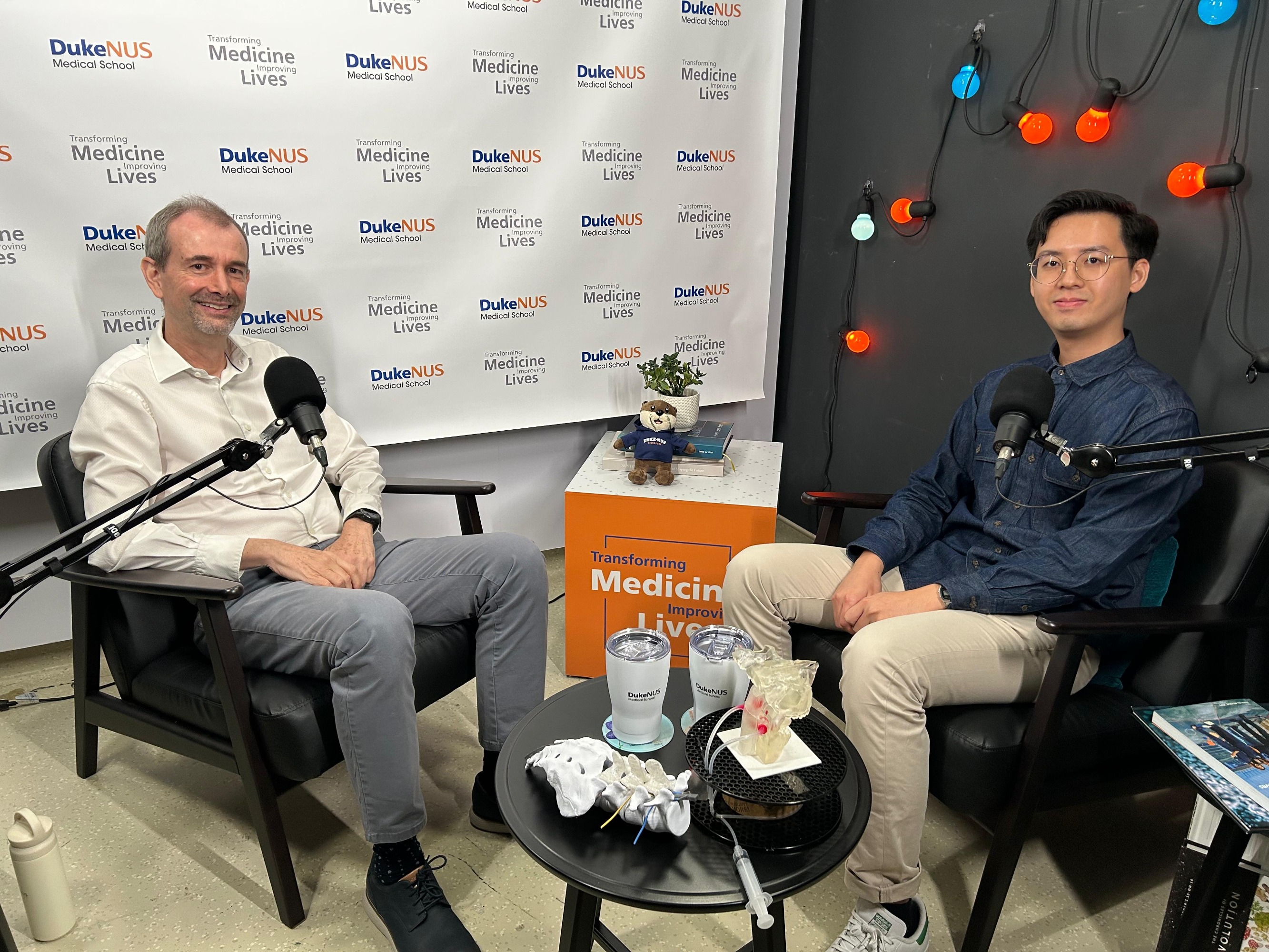On paper, they couldn’t be more different.
Tony Tang studied medieval literature, psychology and creative writing. Inarah Farahah volunteered as an interpreter for Singapore’s deaf community. Kole Utzinger chased mountain summits and global health systems.
But on 8 August 2025, all three stood shoulder to shoulder at Duke-NUS’ White Coat Ceremony, reciting the Hippocratic Oath as members of the incoming MD Class of 2029.
Three paths, one destination
Among the last cohort to graduate from Yale-NUS College, Tang, found immense joy in studying the works of The Gawain Poet, Chrétien de Troyes and Marie de France.
But he was also drawn to helping others: volunteering with the St John Brigade Singapore as a first aider and serving as mentor to co-curricular activity student leaders.
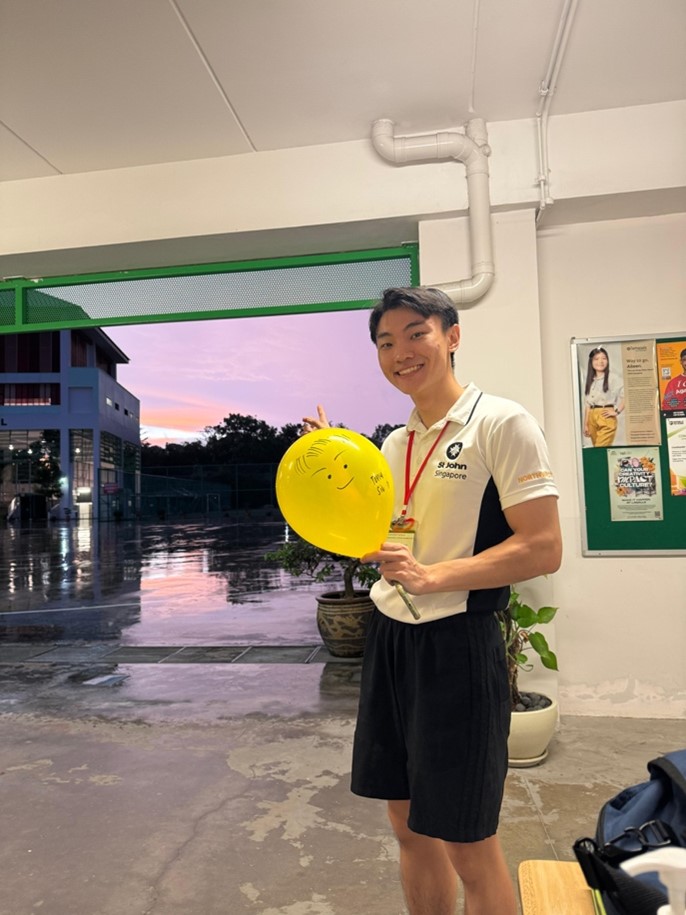
While tending to the injured piqued his interest in healing patients as a doctor, becoming an educator also seemed like an attractive career path for Tang, who had developed a passion for working with youths.
Eventually, Tang decided that the clinic was where he was meant to be.
“I saw with age that [medicine] was much more dynamic and complex as a career than its stereotypical angel-in-white image, which I had sought many years back. These added nuances, together with my reflections on death, loss and human resilience during my undergraduate studies, reignited my interest in it,” he explained.
For Inarah, becoming a doctor was a childhood dream.
The aspiring doctor hit an early roadblock in her journey—one that came in the form of an unsuccessful application.
Undeterred, she continued to find other ways to pursue this passion by giving back to the community: interning at a school for children with intellectual disabilities and autism and volunteering with the Singapore Association for Deaf. Inarah counts these experiences as pivotal in inspiring her to become a clinician who would advocate for more inclusive and accessible healthcare.
Then in 2024, she finally got her long-awaited second shot at studying medicine—this time at a graduate level—when she was accepted into Duke-NUS’ MD Class of 2029 after graduating with a degree in biological sciences and psychology from the Nanyang Technological University in 2025.
Recalling the emotional moment when she found out about her successful application, Inarah said: “I was shocked and over the moon—just so, so happy. It was such a surreal moment. Getting into Duke-NUS meant so much to me— it felt like recognition for all the hard work, growth and perseverance over the years.”
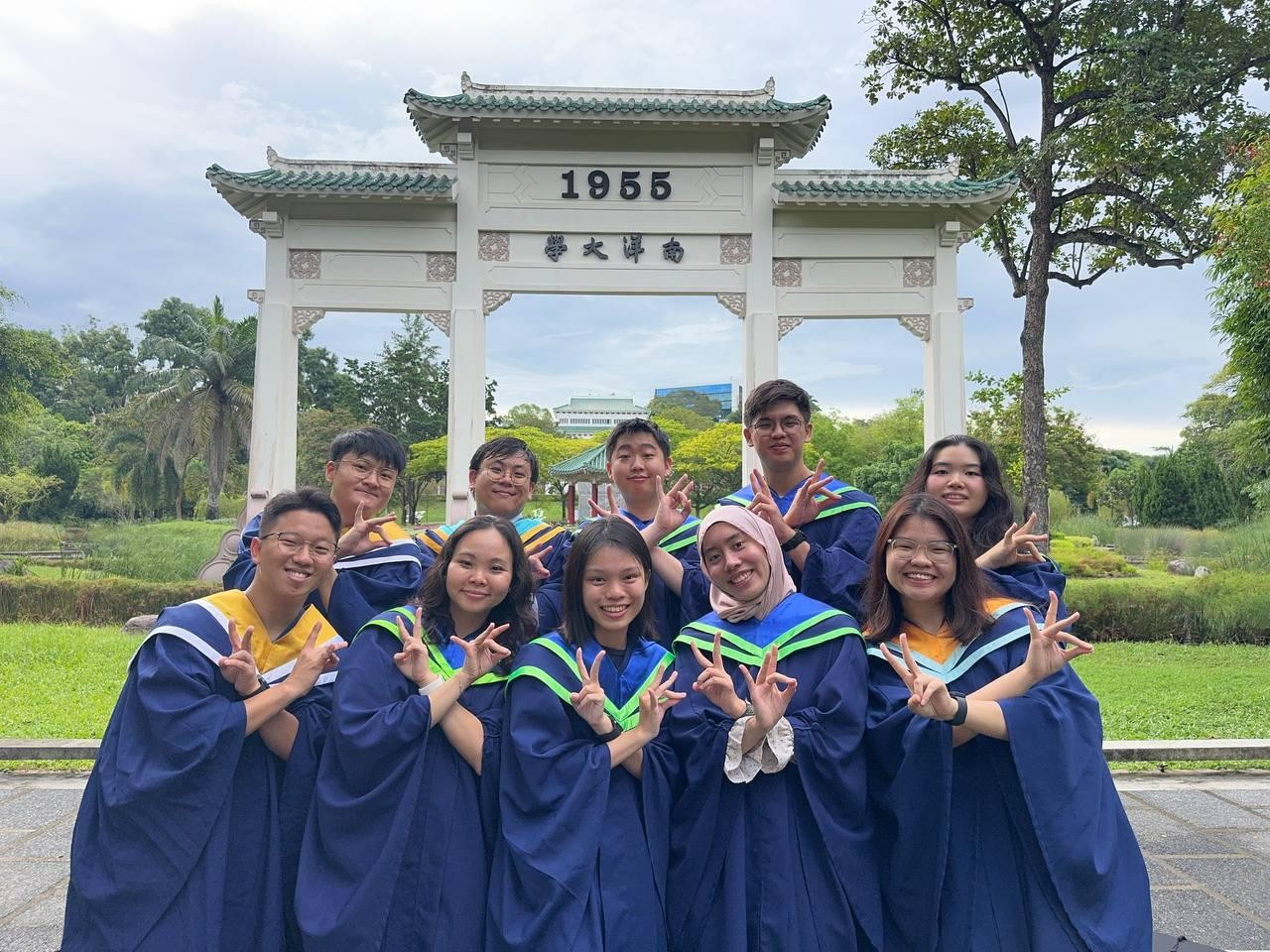
On the other side of the world, Utzinger’s home in California erupted in celebration when news of his admission into Duke-NUS came in the wee hours. For him, it was a culmination of years of hard work and a journey that spanned continents. Having fallen in love with Mandarin and the Chinese culture, Utzinger—a mountaineer who relishes the thrill of a new adventure—left the United States to study biology at the New York University Shanghai in 2017.
As he explored China and nearby Southeast Asia and became “enamoured” with their people and places, his fascination with global health grew, leading him to pursue a Master’s degree in global health upon returning to the United States.
Inspired by case studies of the efficiency of Singapore’s healthcare system and seeking a way to bridge his interests in global health and medicine, Utzinger set his sights on his next destination—Duke-NUS.
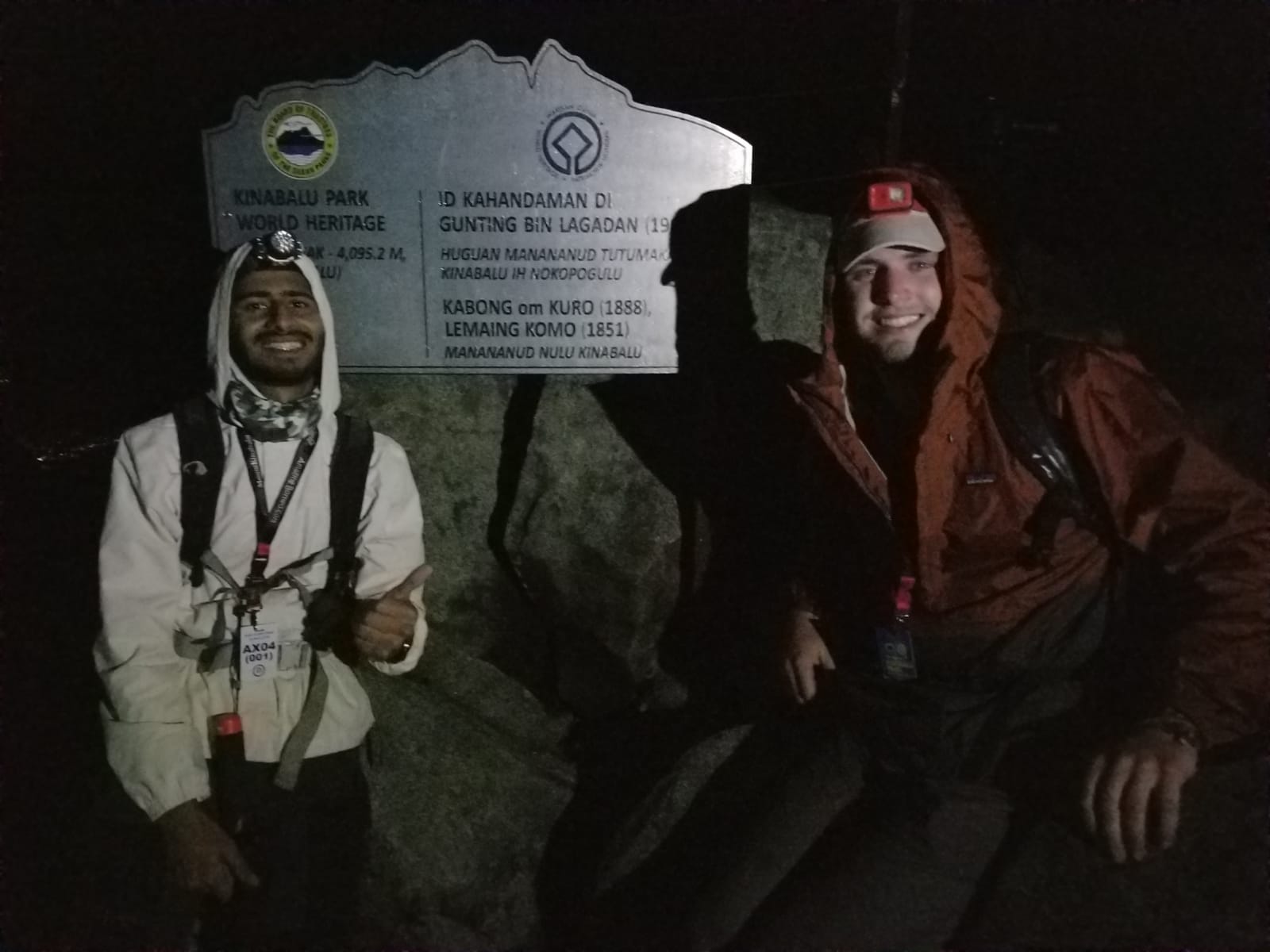
"Not only would I have the chance to study clinical medicine at the highest level, but I would be able to learn medicine in the context of an incredibly high-performing healthcare system while in Southeast Asia,” said Utzinger.
Tapping on diverse perspectives to improve lives
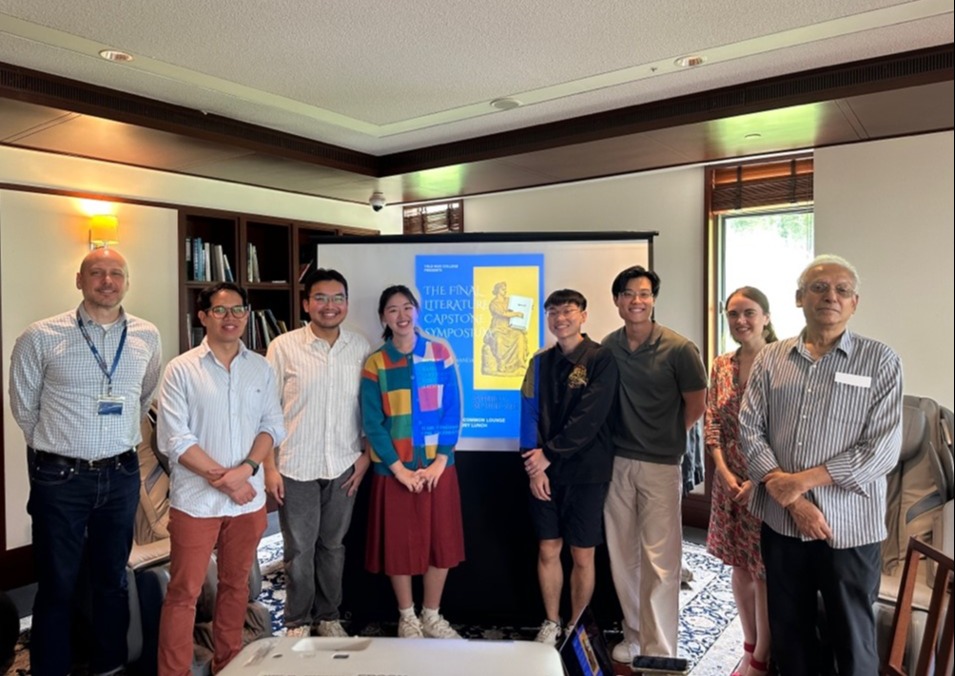
Even as they embark on a new chapter of their lives as future clinicians, Tang, Inarah and Utzinger believe that the skills and experiences they have gained in life will help mould them into the doctors they aspire to become.
While they may not appear to have much in common, Tang considers literature and medicine to be “two sides of the same coin” that enlighten him about human life. It is a perspective that he hopes to bring with him as he cares for his future patients and contributes to the development of medical humanities.
“I have been blessed with many knowledgeable professors and a wealth of reading material that enliven me not just in an aesthetic sense, but also philosophically and spiritually, forming an important ‘human’ foundation for the medical profession,” he reflected.
And his passion for mentoring those who come after him shows no sign of waning. Believing in paying it forward, he seeks to inspire his future juniors in the same way that he has inspired his mentees while volunteering with the St John Brigade Singapore.
To Tang, possessing a heart to serve others—be it patient or peer—is a hallmark of the kind of doctor he aspires to become: “The best doctors strive to grow in empathy and competency, and they should hold an active stake in mentoring the next generation of doctors.”
Echoing Tang’s sentiments, Inarah too, thinks that there is more than just a physical dimension to healing.
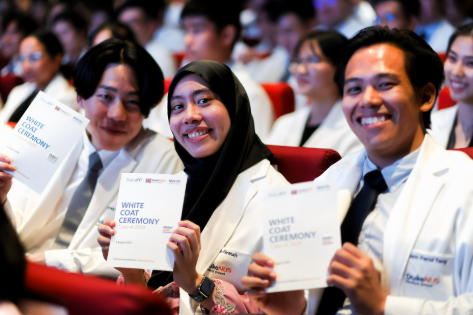
“Medicine is both a science and an art, and I feel that my interdisciplinary background has prepared me well to navigate both,” she said.
While her biological sciences education has equipped her with foundational knowledge on human physiology, diseases as well as diagnosing and treating patients, her background in psychology and personal experience in caring for her grandparents with dementia have helped her realise that it is just as important to understand the “human behind the illness”.
“This helps me better connect with patients, especially in recognising how psychosocial factors influence health behaviours and outcomes. It also trains me to listen with empathy, approach problems holistically and communicate effectively across different patient profiles.”
“There have been moments where I found myself in unfamiliar or challenging contexts, especially during live interpretations—but these experiences pushed me to think on my feet, remain calm under pressure and continue learning,” shared Inarah, who qualified as a community interpreter in 2024 through her extensive volunteering experience.
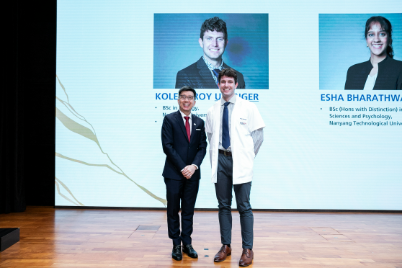
For Utzinger, if there is one thing that his global health development education has taught him, it is that a one-size-fits-all solution does not exist.
“Every case study or working group I have been a part of took on a bit of a different flavour, and interventions usually must be adapted to be employed effectively in different settings. In some cases, even best practices are simply not the best approach,” he said.
The key to being effective in global health development work, he believes, is being able to think out of the box coupled with an ability to use existing resources and knowledge to pioneer solutions to problems.
Recognising that patients, too, have different sets of needs, he hopes to tap on his experience to identify ways of improving the lives of those who will come under his care in the clinic.
The first months in medical school
Since Tang, Inarah and Utzinger began their new lives as medical students nearly three months ago, it has been full steam ahead.
These early days have served as a teaser for the next four years, and while they know that there is much work to be done with more challenges on the horizon, they still relish this chapter of their journey.
“Things are pretty close to what I expected—long hours of stuffing my head with information, late nights, coffee and early mornings. I figured I would meet a lot of smart people in my class, and once again I was not wrong,” said Utzinger, adding that he has been loving life in Duke-NUS so far.
“It feels like boarding a spaceship that has launched at full speed. There’s a little whiplash, but you just know it’s going to be an exhilarating ride, and the only way is up,” agreed Tang.
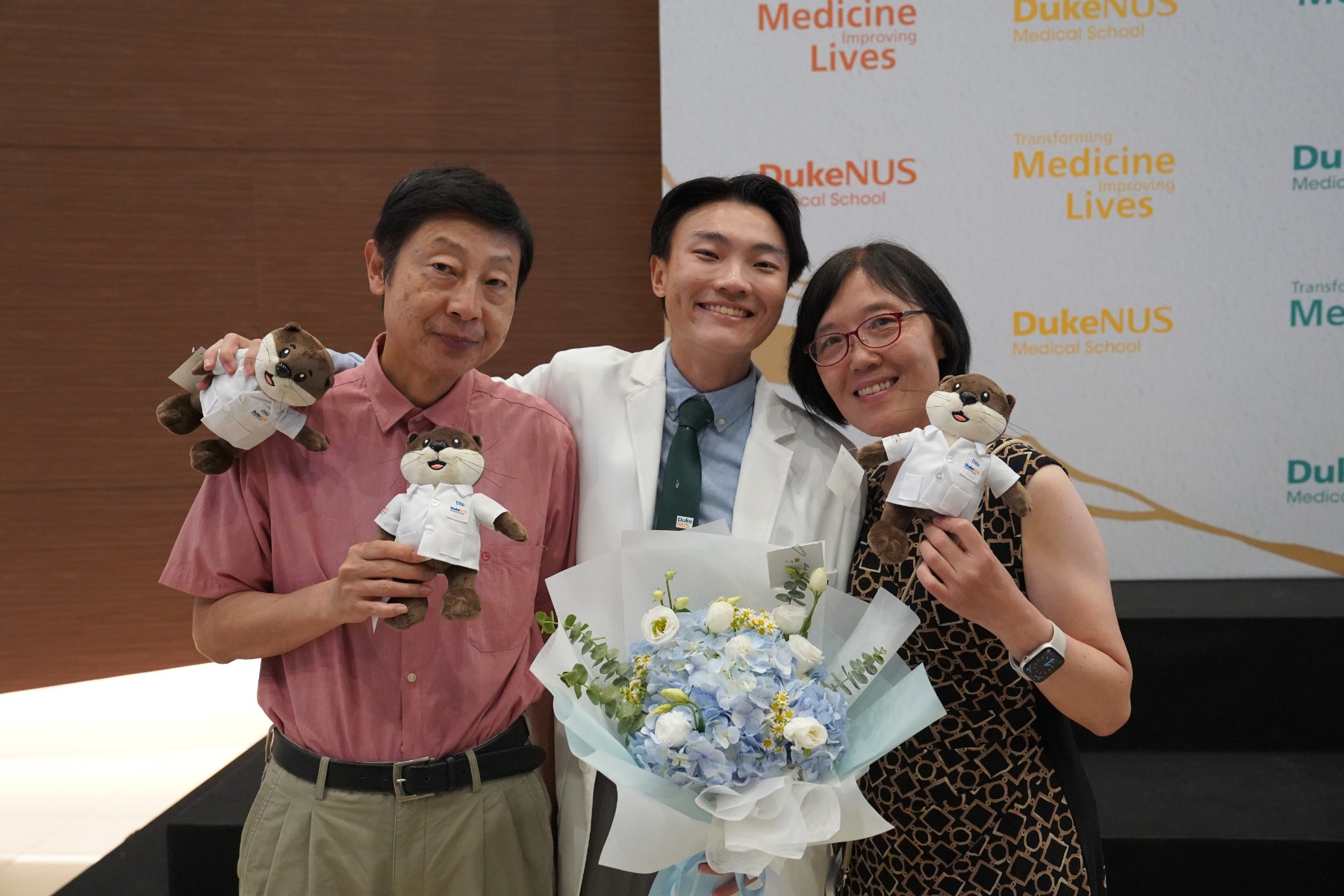
Meanwhile, Inarah described finally being able to study medicine as a “surreal” experience: “There’s a saying that you never truly know something until you experience it yourself, and I think that perfectly sums up what it feels like for me right now.”
She counts this milestone as a core memory, and a heartwarming one that’s she grateful to share with her family and friends. “Seeing their pride reminded me of how much their encouragement has carried me here,” added Inarah.
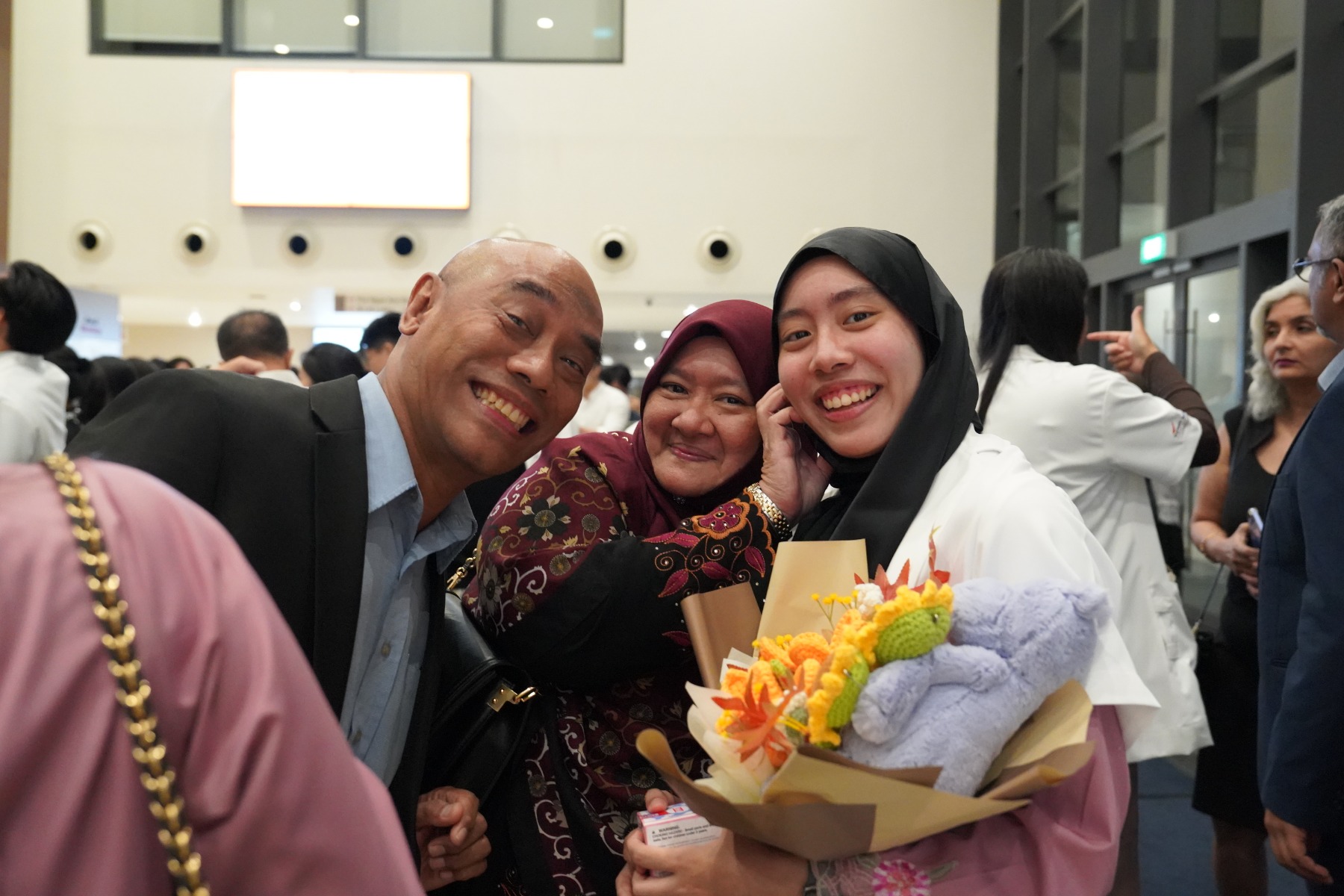
During this transitional period, the close-knit community of fellow doctors-to-be has also made settling into their new lives at Duke-NUS a smooth—and enjoyable—experience for the three.
“One blessed thing [we have] in common is this sense of commitment in the air, a kind of grounded, quiet resilience in all of us who have chosen intentionally (for better or worse!) to spend the next four years of our late twenties/early thirties deep diving into this craft,” said Tang of what is “special” about a group of different individuals being united by a common mission—a sentiment shared by Inarah.
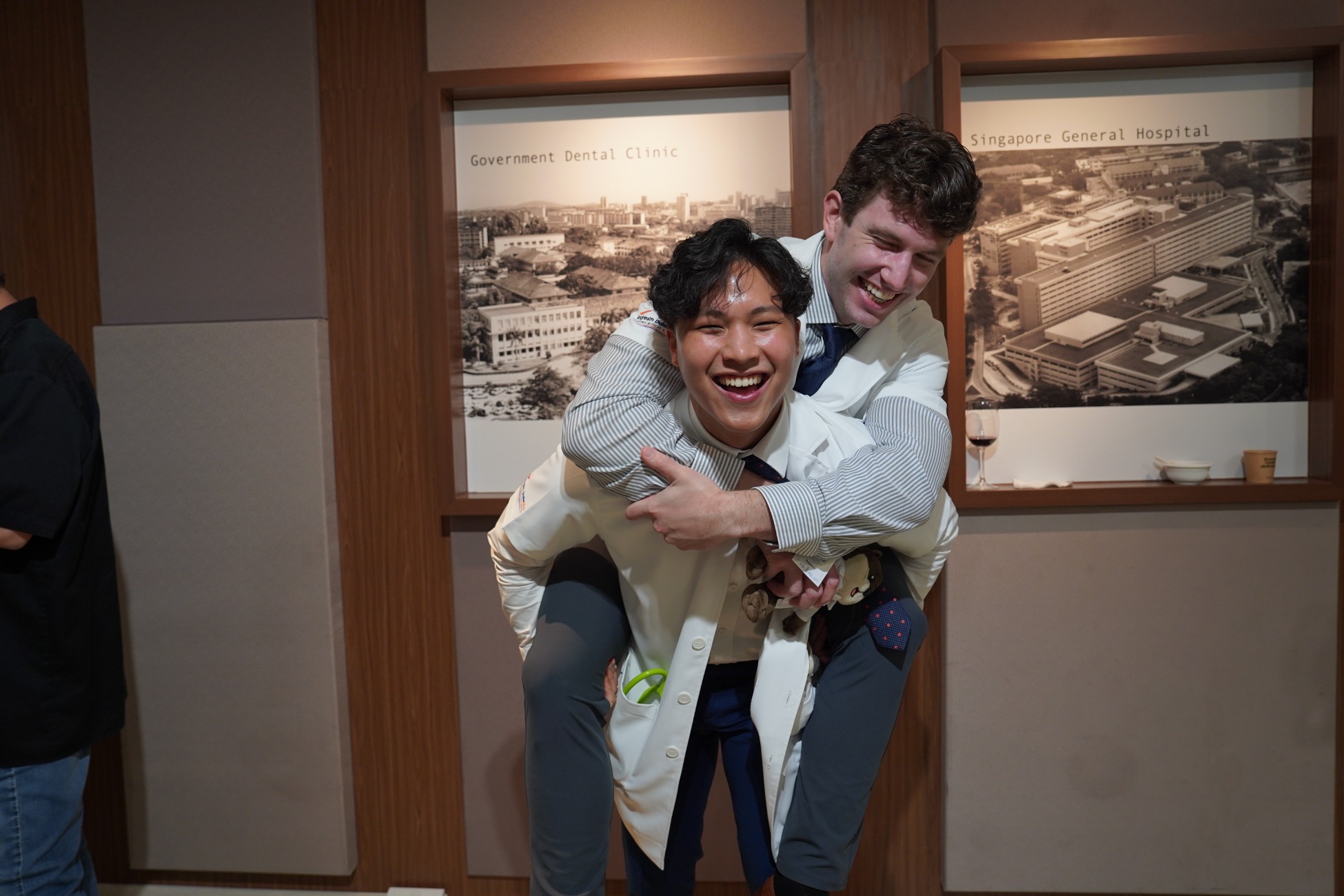
And while moving thousands of kilometres away from home can be daunting, Utzinger has found relocating to be a breeze thanks to a few helpful new schoolmates. He said: “I have a bank account, telephone number, SingPass [account] and even a great climbing gym membership! I know what to order from where, how to take the bus and am even beginning to learn how to use ‘lah’”.
As the echoes of the White Coat Ceremony faded and the first anatomy lectures began, Tang, Inarah and Utzinger found themselves moving at full speed into the life they’d each long imagined—but never quite expected to live alongside one another.
Different dreams, different roads, but one promise: to heal, to serve, and to never walk the journey alone.




-(2).png?sfvrsn=712a214_0)
